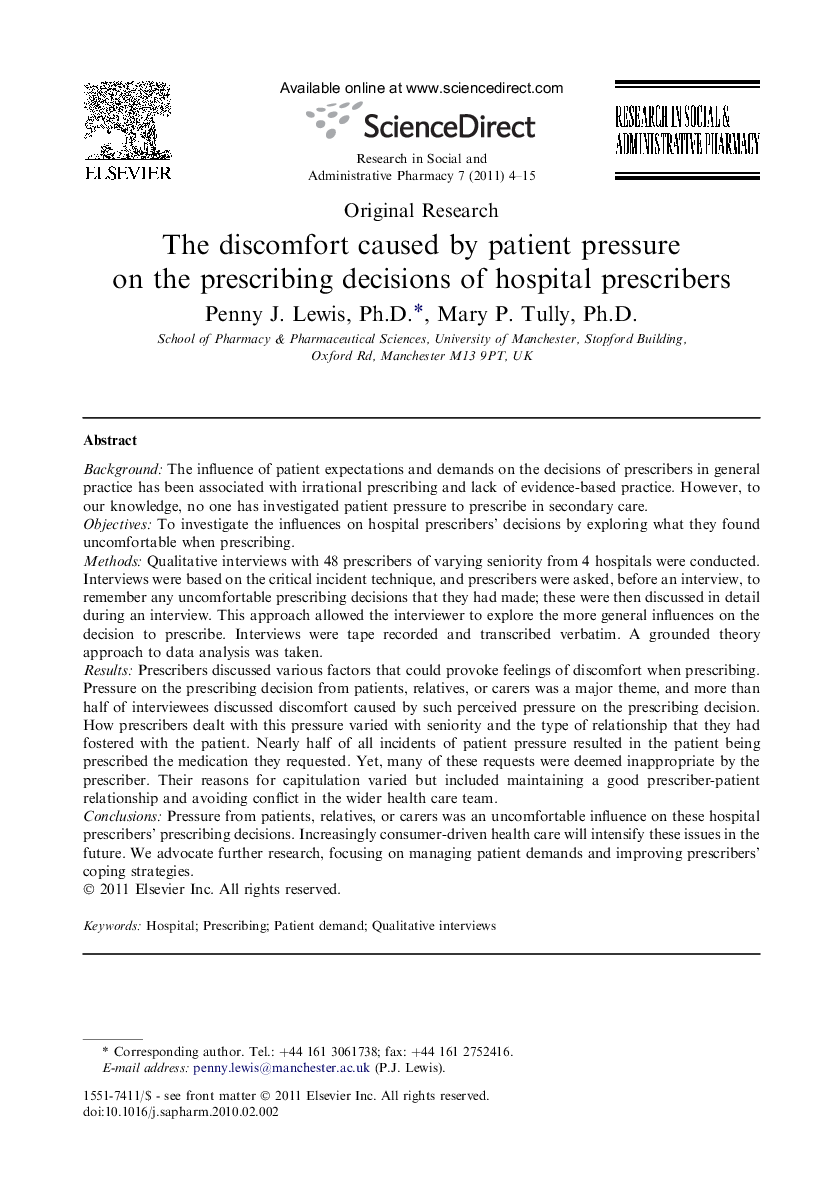| Article ID | Journal | Published Year | Pages | File Type |
|---|---|---|---|---|
| 2508662 | Research in Social and Administrative Pharmacy | 2011 | 12 Pages |
BackgroundThe influence of patient expectations and demands on the decisions of prescribers in general practice has been associated with irrational prescribing and lack of evidence-based practice. However, to our knowledge, no one has investigated patient pressure to prescribe in secondary care.ObjectivesTo investigate the influences on hospital prescribers' decisions by exploring what they found uncomfortable when prescribing.MethodsQualitative interviews with 48 prescribers of varying seniority from 4 hospitals were conducted. Interviews were based on the critical incident technique, and prescribers were asked, before an interview, to remember any uncomfortable prescribing decisions that they had made; these were then discussed in detail during an interview. This approach allowed the interviewer to explore the more general influences on the decision to prescribe. Interviews were tape recorded and transcribed verbatim. A grounded theory approach to data analysis was taken.ResultsPrescribers discussed various factors that could provoke feelings of discomfort when prescribing. Pressure on the prescribing decision from patients, relatives, or carers was a major theme, and more than half of interviewees discussed discomfort caused by such perceived pressure on the prescribing decision. How prescribers dealt with this pressure varied with seniority and the type of relationship that they had fostered with the patient. Nearly half of all incidents of patient pressure resulted in the patient being prescribed the medication they requested. Yet, many of these requests were deemed inappropriate by the prescriber. Their reasons for capitulation varied but included maintaining a good prescriber-patient relationship and avoiding conflict in the wider health care team.ConclusionsPressure from patients, relatives, or carers was an uncomfortable influence on these hospital prescribers' prescribing decisions. Increasingly consumer-driven health care will intensify these issues in the future. We advocate further research, focusing on managing patient demands and improving prescribers' coping strategies.
